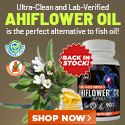
Vital Pollinating Bees Need Protection
Friday, February 12, 2010 by: Peter Finch
Tags: honeybees, pollination, health news
- Aerosolized bioweapons? Strange “diploid biomasses” falling out of the sky in Florida captured under the microscope
- German researchers find link between mRNA vaccines and GENETIC CHANGES that precede CANCER and AUTOIMMUNE DISORDERS
- Exclusive: Microscopic analysis suggests unknown biological contaminants falling from the sky
- DEATH by 12 VACCINES SIMULTANEOUSLY: Doctor playing catch-up on jabs injects 1-year-old baby with massive combination of dirty vax cocktails
- FBI imposed gag order on agents to silence Hunter Biden laptop truth before 2020 election, new chat logs reveal
- Newly released JFK files reveal Pentagon's role in creating Lyme disease and covid in the same lab
- European Court of Justice: Healthcare professionals who promoted or administered COVID-19 vaccines are CRIMINALLY LIABLE for any harm caused
- “Project Aldrin”: Senate probes Meta's alleged censorship dealings with China
- Nature's liver guardian: Milk thistle's timeless antidote to modern toxin overload
- “Bankrupt Tesla” movement EXPOSED: Left-wing extremists, Biden-linked operatives target Elon Musk in coordinated attack
- How the Vaccine Industry escaped accountability for nearly FOUR DECADES, endangering children’s lives for false hopes of protection
- The dark legacy of the U.S. government’s UNETHICAL medical and military research
- NASA, State Dept. admit to renaming DEI programs to dodge Trump's ban in undercover sting
- When antibiotics are unavailable, natural ANTIMICROBIAL compounds become essential first line defenses against infection
- “The Message of the Sphinx”: Did a lost civilization build the Giza monuments?
- Sleep shortfalls and silent brain decline: How poor sleep patterns may herald Alzheimer's risk
- Dr. Mary Talley Bowden drops bombshells about children being permanently damaged by mRNA jabs during Tucker Carlson interview
- Astaxanthin: Nature’s ultimate antioxidant powerhouse
- Newly released JFK files reveal Pentagon's role in creating Lyme disease and covid in the same lab
- Oncologist warns of ‘terrifyingly aggressive’ cancers in children, linked to immune suppression from COVID vaccines
- Kiss Your Genetic Privacy Good-Bye! 23andMe Gets Green Light to Sell Your Intimate Genetic Details to Anyone They Want
- European Court of Justice: Healthcare professionals who promoted or administered COVID-19 vaccines are CRIMINALLY LIABLE for any harm caused
- Analysis: The coming economic collapse, a mass uprising and Trump's three secret weapons to halt the growing revolt
- Woman contracts WORLD'S DEADLIEST VIRUS after unknowingly being given the WRONG VACCINE
- Sugar-free deception: Artificial sweeteners hijack hunger signals, fuel obesity epidemic, study warns
- NIH study, buried for decades, reveals that Flu Shots INCREASE elderly deaths, not prevent them
- Britain’s descent into police state censorship: Parents raided for questioning their daughter’s school system online
- AI weather model outperforms traditional forecasts, boosts accuracy by 20%
- Aerosolized bioweapons? Strange “diploid biomasses” falling out of the sky in Florida captured under the microscope
- DARPA: The shadowy innovator behind the world’s most advanced military technologies
- The Health Ranger releases “Vaccine Zombie” song and music video, using AI-animated zombies for the music video
- Utah governor allows ban on LGBT pride flags in public buildings and schools, will take effect without his signature
- COVID-19 scandal linked to CANCER SURGE: Billionaire researcher sounds alarm
- Musk targets “strangely wealthy” lawmakers in DOGE probe, names Pelosi, McConnell, Schumer
- Dr. Suzanne Humphries makes bombshell appearance on Joe Rogan podcast, exposing vaccine industry deception back to POLIOMYELITIS
- Ancient kitchen secrets REVEALED: How garlic, ginger and green onions fight cancer and heart disease
- Newly released JFK files reveal Pentagon's role in creating Lyme disease and covid in the same lab
- California's social media censorship law struck down: A victory for free speech or a threat to online safety?
- EPA advisor admits the agency is funneling billions to climate groups ahead of Trump’s return to White House
- Dr. Mike Yeadon releases 15-minute testimony - WATCH - about genocidal intent of COVID “vaccines”
- The Health Ranger releases “Vaccine Zombie” song and music video, using AI-animated zombies for the music video
- Florida takes a stand: DeSantis proposes permanent ban on mRNA vaccine mandates
- Rep. Nancy Mace introduces bill to ban biological males from female facilities on federal property
- Mike Adams releases country western hit single: Goin’ Back in Time is Comin’ Home
- Sugarcane extract superior to cholesterol-lowering drugs?
- Survival 101: Effective EMF blocking techniques
- “Why we influenced the 2020 elections”: Facebook files reveal the coordinated effort to bury the Hunter Biden laptop story
- Unpacking the Lies That We’ve Been Fed – new song and music video released by Mike Adams, the Health Ranger
- House Intelligence Committee calls for the ARREST and PROSECUTION of Dr. Anthony Fauci
- The pandemic as a tool for INDOCTRINATION: Understanding “The Indoctrinated Brain” by Dr. Michael Nehls
- Mike Adams releases music poetry sensation: A Child of God
- OpenAI whistleblower who dissented against how the company trained ChatGPT found dead
- Attorney and TikTok influencer explains how he was offered hundreds of dollars to make false claims about Trump, Republicans
- CONSERVATIVES SOUND THE ALARM: Big Pharma and the Left trying to force $32 billion money grab from America’s seniors into year-end spending deal
- Red Cross issues warning to stop blood plasma donations from vaccinated people
- Scientists confirm: GENIUS brain function can be spontaneously unleashed in humans without any apparent cause
- EPA advisor admits the agency is funneling billions to climate groups ahead of Trump’s return to White House
- HYSSOP: What research reveals about the health benefits of this ancient holy herb
- Two containers with completed ballots fall out of truck in Florida
- Fully vaccinated about to see “tsunami” of illness and death, warns virologist
- Global leaders unite to clamp down on “misinformation” with UN-backed Cascais Declaration
- BREAKING: 2025 NDAA authorizes mandatory military draft of WOMEN across America… as Pentagon pursues global NUCLEAR war with both Russia and China at the same time
- Michael Yon warns of a ZIONIST TAKEOVER in Trump’s second administration
- Ozempic and Wegovy weight loss drugs are injectable LIZARD VENOM PEPTIDES that may unleash a devastating wave of organ failure… side effects align with symptoms of SNAKE BITES
- BOMBSHELL: DNA testing kits are a SCAM to develop ethnic-specific bioweapons
- Newly released JFK files reveal Pentagon's role in creating Lyme disease and covid in the same lab
- Israeli soldiers accused of even more torture and abuse in the West Bank
- These 13 countries just signed an agreement to engineer a global FAMINE by destroying food supply
- NASA admits that climate change occurs because of changes in Earth’s solar orbit, and NOT because of SUVs and fossil fuels
- The Health Ranger releases “Vaccine Zombie” song and music video, using AI-animated zombies for the music video
- RFK Jr. clears key hurdle: Sen. Susan Collins backs controversial HHS nominee, signaling a new era for health policy
- Sermon 30: How Jesus reveals Caesar’s FAKE CURRENCY and FALSE AUTHORITY
We face the prospect of a world with scarcer and therefore pricier coffee and orange juice for our breakfast and with fewer apples, oranges, lemons, berries, peaches, cherries, melons, nuts, squash, beans, and yes, honey. The prime pollinator of all these crops and more, the Western honeybee, is annually responsible for around $15 billion US dollars in food crop value from 130 food crops.
Around five years ago, honeybee populations started plummeting in North America. Suddenly, between 2005 and 2006, there was a sharp and catastrophic collapse of bee colonies in dozens of countries simultaneously. This was unlike anything seen before, even by the most experienced beekeepers.
In the USA, approximately one third of all hives have collapsed over the last two years. These losses constitute around 800,000 colonies in 2007 and a staggering 1 million colonies in 2008. Various causes have been mooted, and now neonicotinoid (nicotine-based) chemicals are under the spotlight.
In 2004, France banned the best selling pesticide imidacloprid. In 2008, Germany suspended the registration for eight pesticide seed treatment products used on canola and corn. The European Parliament voted late in 2009 for tougher controls on bee-toxic chemicals.
Movement to stem drastic honeybee population declines in North America has been much slower. For years, neonicotinoids have been sprayed onto corn. Now huge agribusiness corporations have acquired patents to coat their proprietary corn seeds with these neonicotinoids. These "neonics" are extremely persistent. They enter the plant and are present in pollen and on droplets of water on leaves.
Now, in light of the mounting evidence that new seed chemical coatings are deadly to bees, Sierra Club has been urging the Environmental Protection Agency (EPA) to ban their use until it obtains scientific evidence that sublethal effects do not cause harm to America's honeybees.
A new documentary called Nicotine Bees was filmed across the US, in Germany, in Canada, and in India. It seems to implicate neonicotinoids as the most important factor in the bee die-offs, and the Sierra Club is urging the American public to view Nicotine Bees. They suggest showing the 45-minute film in schools and at organizational meetings.
Beekeeper Kim Flottum concludes, "It is obvious that bees and nicotine don't mix anywhere on the map. You can be pretty well assured that if honey bees are at risk, so are all the rest of the pollinators out there. All of them."
Another documentary film, The Vanishing of the Bees, warns that if pollinated crops are less available, our diets will consist more and more of rice, wheat, soybeans, and corn (all largely self- or wind-pollinated). Interestingly, these are the main crops that agribusiness has huge financial stakes in.
As gardeners and farmers, we can help the honeybee. Apart from working to ban indiscriminate spraying of pesticides, we can plant native flowers, trees and shrubs that are bee-friendly on our land. We can learn about beekeeping and set up hives in our own backyards. We can grow, buy and eat food that supports local, organic and small-scale farming practices and producers that are pesticide-free. When we look after the honeybee, we also look after ourselves.
Sources:
www.sierraclub.org/biotech/whatsnew/whatsnew...
http://NicotineBees.com
www.thedailygreen.com/environmental-news/blo...
http://en.wikipedia.org/wiki/List_of_plants_...
About the author
Peter Finch is a certified-organic grower of premium produce and herbs, that he sells at seasonal farmers markets and to restaurants, natural food stores. Peter's farm perches high in the rolling hills of Northumberland, Ontario, Canada, where the glacial till provides mineral-rich soils. Farmer Pete's new blog is www.spicymesclun.blogspot.com.Honeybees at FETCH.news
Get independent news alerts on natural cures, food lab tests, cannabis medicine, science, robotics, drones, privacy and more.
Take Action: Support Natural News by linking to this article from your website
Permalink to this article:
Embed article link: (copy HTML code below):
Reprinting this article:
Non-commercial use OK, cite NaturalNews.com with clickable link.
Follow Natural News on Facebook, Twitter, Google Plus, and Pinterest
Science News & Studies
Medicine News and Information
Food News & Studies
Health News & Studies
Herbs News & Information
Pollution News & Studies
Cancer News & Studies
Climate News & Studies
Survival News & Information
Gear News & Information
News covering technology, stocks, hackers, and more



"Big Tech and mainstream media are constantly trying to silence the independent voices that dare to bring you the truth about toxic food ingredients, dangerous medications and the failed, fraudulent science of the profit-driven medical establishment.
Email is one of the best ways to make sure you stay informed, without the censorship of the tech giants (Google, Apple, Facebook, Twitter, YouTube, etc.). Stay informed and you'll even likely learn information that may help save your own life."
–The Health Ranger, Mike Adams












































